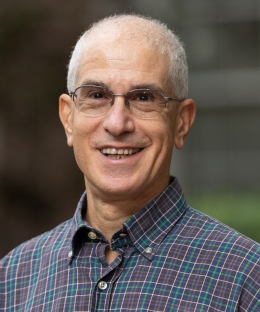
Daniel Richman
- Paul J. Kellner Professor of Law
J.D., Yale University, 1984
A.B., Harvard University, 1980
National Security
Privacy
Criminal Procedure
Adjudication
Evidence
Federal Criminal Law
Surveillance/Cybersecurity

J.D., Yale University, 1984
A.B., Harvard University, 1980
National Security
Privacy
Criminal Procedure
Adjudication
Evidence
Federal Criminal Law
Surveillance/Cybersecurity
A former federal prosecutor in the U.S. Attorney’s Office for the Southern District of New York, Daniel Richman teaches and writes about criminal adjudication; federal criminal law; sentencing; and cybersecurity, data privacy, and surveillance law. His recent scholarship includes the article “Accounting for Prosecutors,” which addresses prosecutorial discretion and the power of prosecutors to shape criminal law, and “Defining Crime, Delegating Authority – How Different are Administrative Crimes?,” which considers the critique of administrative crimes through a federal criminal law lens.
Richman is a recipient of Columbia University’s Presidential Award for Teaching. Before joining the faculty in 2007, he taught at Fordham Law School and the University of Virginia School of Law. In addition to his experience at the U.S. Attorney’s Office, where he was the chief appellate attorney and worked in both the organized crime and narcotics units, Richman clerked for Justice Thurgood Marshall on the U.S. Supreme Court and Chief Judge Wilfred Feinberg on the U.S. Court of Appeals for the 2nd Circuit.
Richman has served as an adviser to former FBI Director James B. Comey and as a consultant to the U.S. Department of Justice and Department of the Treasury. Under New York City Mayor Michael Bloomberg, Richman served as chairman of the Local Conditional Release Commission.


Law School faculty and legal experts offer insights into the high court’s recent rulings.